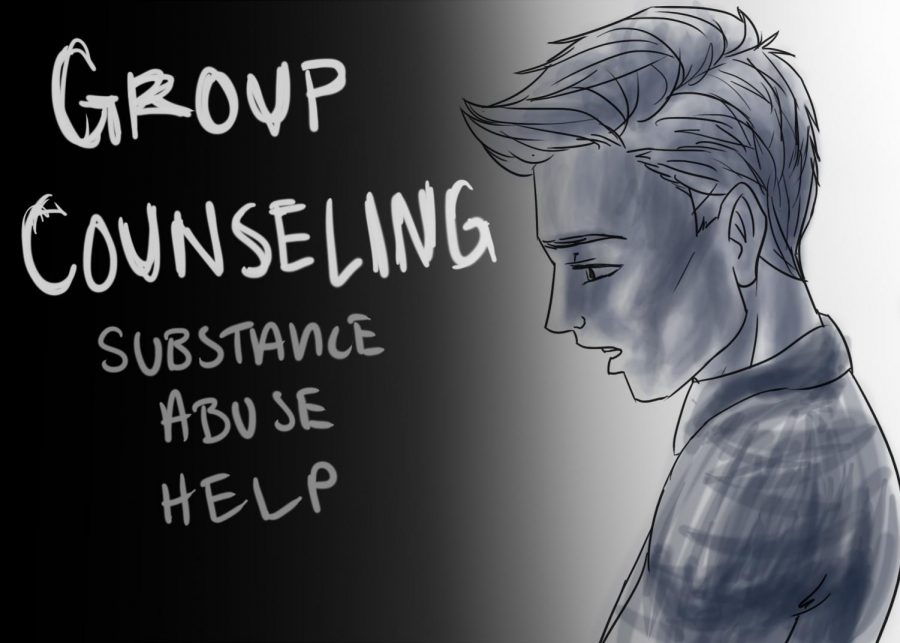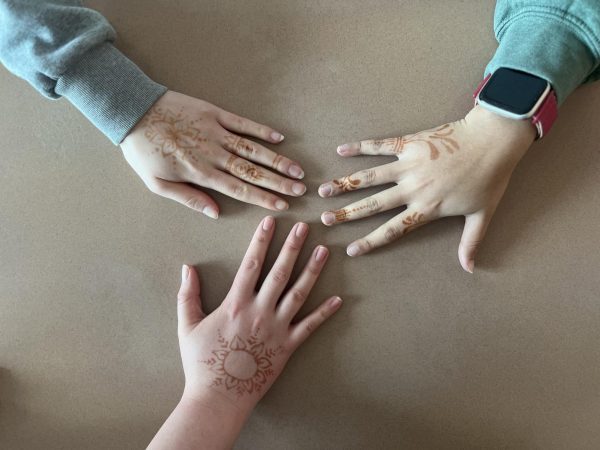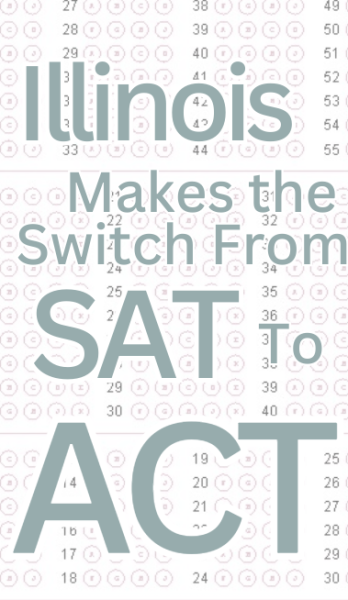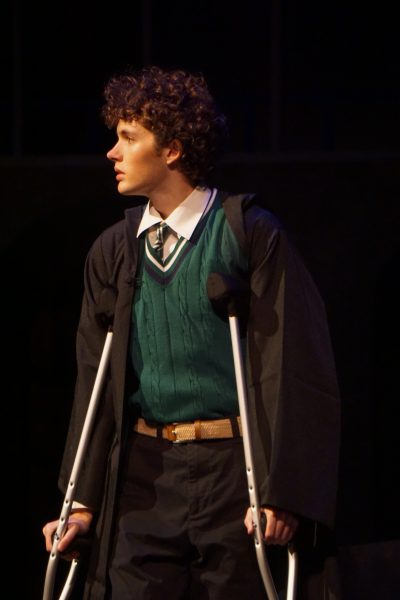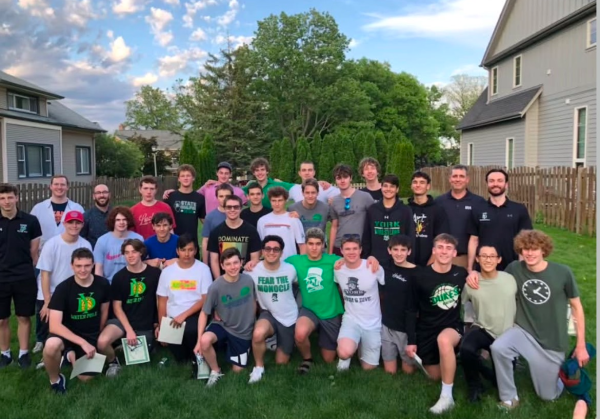York implements program to prevent substance abuse
This year, the York administration has partnered up with the Rotary Club of Elmhurst and Rosecrance Health Network to implement a new program designed to nip substance abuse in the bud by providing a free, voluntary assessment to determine treatment paths for those suffering from substance abuse, and in-school group counseling sessions, which hope to lessen any emotional turmoil that could lead to substance abuse in the future.
The program is divided into two parts: first, a student would take the assessment to determine what kind of help they may need; second, the student (or any interested student) would attend a group counseling session to help alleviate any emotional distress that could contribute to substance abuse.
Assessment of Abuse
Assistant Principal Melissa Moore has spearheaded this project for the administration, speaking directly with Rosecrance, a health center which focuses on substance abuse treatment, to develop an avenue through which students who need it can get help.
“We started talking through some potential programming that we could do, and from that we came up with this two part initiative,” said Moore. “The first part of it is we are going to providing students the ability to access an assessment that would be done by somebody from Rosecrance Health Network, and that assessment would be done free of charge.”
The assessment will be available at York in order to make sure all students have access to it, since some may not have the resources to drive far away to get such an assessment, which will focus mainly on helping a student determine the severity of their substance abuse and what can be done to resolve it.
“It would be done with students and parents totally voluntary,” said Moore. “No student would be required to participate–it would just be if there’s a student who has been using substances, and there’s a need to do an assessment to see what kind of treatment options are available. This is something that we could offer to that student and that family.”
Results of this assessment are completely confidential–the school will not be allowed to see any of it unless the student or parents turn them over, and even then it would only be social workers and counselors, never teachers. These results will help determine whether or not certain students need treatment and what kinds of treatment would be most beneficial; treatments can range anywhere from inpatient treatment, which is living in the treatment facility, to counseling programs that will be offered right here at York.
Group Counseling Sessions
“One of the treatments we’ll be providing at York going forward is group counseling, like monthly sessions the student can attend,” said Moore. “It might be something where students have already participated in more intense treatments, like an outpatient or inpatient program, and instead of just being left with nothing, they’ll have these monthly checkins.”
Just like the assessments, these counseling sessions would be completely voluntary. If a counselor or social worker had reason to believe that a student could benefit from the sessions, however, they may take initiative and invite these students to them.
“Much of what we do is driven by data, which can be a little funky, but taking a look at frequency of independent visits, when someone’s coming in independently more often than not we could invite them to join a group session,” said Ashley Tucker, a counselor here at York, and who had completed an internship in graduate school where she assisted in a substance abuse department and helped run the group sessions held there. “[It could also be] when we get notice from teacher referrals, or parent referrals, or just the students own referral that they’ve got an issue that’s a little bit more significant and they might benefit from something that gets all kind of marked down.”
The Rotary Club of Elmhurst has donated $8,000 to help develop an area in the school reserved only for group counseling sessions. York is no stranger to group counseling, offering six to eight week programs with groups focused on different things–there’s a loss and grief group, an anxiety group, a girls’ group, and a group on executive functioning. These services have been offered for years but have never been implemented on as large of a scale.
“They offer [these] groups, but we’ve never had a dedicated space to [them]; we’ve always used like the conference room, which is kind of a stale environment, so it’s really nice that the Rotary Club is able to come in and provide the funding to have a really nice, comfortable, better group space,” said Tucker. “It’s also nice for privacy and confidentiality.”
Though there may be little apparent connection between group counseling and substance abuse, the counseling is aimed at stopping substance abuse before it happens–one of the leading causes of substance abuse it overwhelming stress, and these sessions are meant to alleviate that.
“A lot of times it’s not necessarily that students are using substances here in high school, but that they might be more at risk to using substances after leaving high school because they don’t have the skills that they might need to just survive with all of the stressors that are out there in the real world,” said Moore. “One of the things I talked about was wanting to make sure we reach more and more students to help teach [them] healthy coping skills, how to manage stress and anxiety, how to just process and talk about common experiences that they’re having.”
Though there is a certain degree of confidentiality when students go and have one-on-one discussions with their counselors, many students are hesitant to share their anxieties with a group of peers.
This is an extremely valid concern–no one wants to open up just to have their problems blabbed about to the entire school. That fear of being exposed is what normally keeps people from participating when they first start attending group counseling sessions–but once trust builds within the group, it can actually be very successful.
“When you’re in the group it really depends on group dynamic and rapport with the person running the group and with one another. So a lot of time and energy is spent on getting to know one another. Groups might be four, five or six people, which helps the group get along, and that confidentiality is more trusted,” said Tucker. “Some groups are really successful–we started the school year having some groups wanting to start up again that ran last year.”
While students with anxieties of any variety are welcome to take part in the new group counseling programs, many students wonder how willing students who are suffering from serious substance abuse will be to come to the school for help.
“I just don’t think many students will come forward about this kinda thing,” said senior Gio Rodriguez. “They would be way too scared of being punished.”
York does indeed have strict rules and sanctions when it comes to using certain substances on campus, but there is no penalty for coming forward and asking for help. According to the student handbook, “Voluntary admission of a substance abuse problem will not be subject to disciplinary actions. In such cases, student and parents will sign a contract confirming intention of completing a mutually agreed upon drug education program.” In addition, no self-reports will be turned over to the police unless there is a reasonable possibility the student could hurt themselves or others.
This whole endeavor will undoubtedly take some time and some getting used to, but the prospects for students suffering from substance abuse, or are at risk to be, have never looked better.
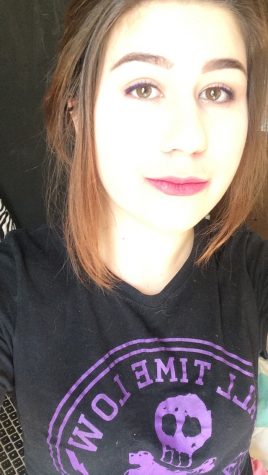
Gracie is a junior at York, in her second year on the York Hi staff as the Graphics Editor. She spends a majority of her time drawing, and on extracurriculars...


